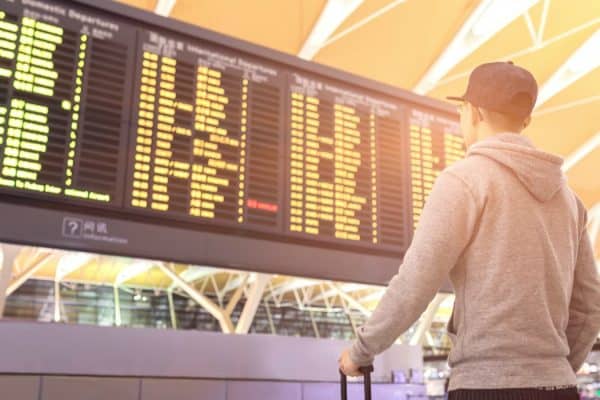With a name like Sunny, you can easily believe that there’s nothing the team here love more than a bit of sunshine! And it seems the nation agrees. According to recent research by Asda Money, two thirds of Brits would choose to jet off abroad for their holidays rather than stay in the UK. The nation as a whole are set to spend a whopping £43 billion on their travel, accommodation and planned holiday spending money this summer! Travelling abroad really is a costly business.
With so many of us trying to stick to strict budgets, though, how can you keep extra holiday costs to a minimum? We’ve put together a few of the common costs that can easily get out of hand, and how you can keep a check on them.
Your itinerary
How often have you arrived at an attraction only to find the admission cost is more than you were expecting? If there are specific attractions you want to visit as part of your trip, doing some research and buying tickets in advance can be a great way to save money vs. the on the day price.
As well as advance tickets often being cheaper, many cities and other holiday destinations offer a tourist pass. You can buy this ahead of your trip to grant you either free or discounted entry to main attractions. Some will also grant you discounts at popular restaurants, inclusive use of public transport, and more! Check out the passes for New York, Barcelona and Paris as a starting point.
If you know people who’ve been to your destination before, they may also have some hints and tips to help you skip expensive attractions that aren’t worth it, and find better value experiences to try, so it’s worth asking around!
Planning for illness and injury
It’s the stuff that nightmares are made of and very unlucky when it happens, but easy to take preventative measures against. Taking ill, or becoming injured while on holiday abroad can not only spoil your entire group’s trip, but can also cost you a fortune. Additional travel and accommodation, as well as pricey treatments, can end up costing thousands!
Taking out travel insurance is a must if you’re leaving the UK. It doesn’t have to cost the earth and you can compare policies on sites like MoneySupermarket. If you’re travelling more than once a year, an annual or multi-trip policy could be a better value spend than a number of single trip policies. On top of that, making sure you have a valid EHIC for European travel can be a lifeline if you need emergency medical attention. This entitles you to free or discounted treatment in state-run facilities throughout the EU.
Using your phone abroad
Networks have made big changes to their roaming charges over the last few years and they’re getting cheaper all the time. But, running up a huge bill while out of the country is still a worry for many of us. The simple answer is to turn off your data roaming so you don’t incur any extra charges at all. However, going off the grid while you’re away is unthinkable for a lot of people! Thankfully, there are a couple of options to help you stay connected without burning a huge hole in your wallet:
- Speak to your current network provider – many are starting to include roaming in their packages, or offer travel bundles to help you use your phone more cheaply while you’re abroad. Also check if they have a maximum cost cap in place to help you stay in control of what you spend on your phone while you’re away
- Think about a Pay As You Go SIM card – while most people are on contract deals these days, if another network is offering a great travel deal (like Three’s Feel At Home deals) then a PAYG SIM could help you to take advantage of the savings on offer. Watch out, though – most devices are “locked” to one network, so you may need yours to be “unlocked” by your network before you can use a different SIM in it. Some networks offer to do this for free, and some charge, so check with yours before you decide how to use your phone while travelling.
Luggage allowances
How big and heavy your bags are allowed to be can vary between types of transport, providers, and the distance you’re travelling. Exceeding your allowances can be extremely costly, so it pays to know what they are so you can plan for them. Here are a few luggage hints and tips to help you avoid overweight and oversize baggage fees:
- If you’re using a few different types of transport or different airlines during your trip, check all of your providers’ baggage policies in case they’re different to one another and prepare for the strictest to avoid fees
- If you’re travelling with children, check your provider’s policy on taking pushchairs and car seats. Many airlines, for example, will let you bring them for free, on top of your allowances, as an item of hold luggage
- Some airlines allow you to pool your allowances with others travelling in your party, so for example if your case weighs 23kg and your travelling buddy’s case weighs 17kg, and you each have an allowance of 20kg, that’s fine
- Follow a packing hack tutorial video like this one from Tesco Living to fit more into your bags
If you know you’re going to be over your allowances and can’t leave anything else behind or take a smaller bag, then you can pay to increase your allowances. While the charges individual airlines impose may vary, most agree that it’s much cheaper to contact them ahead of time to arrange this versus waiting until you arrive at the airport.
Exchange rates
OK, the value of the pound has gone down against many currencies since the EU Referendum, there’s no way around that. But that doesn’t mean there aren’t still deals to be had when converting your currency this summer:
- Keep an eye on the exchange rates for the currency you need – they change daily and fluctuate up and down, so keeping an eye on the trends for a few weeks before you need to convert your currency can help you to work out how much you’ll get for your money, and decide whether you need to set any more than you’d planned aside.
- Compare different exchange bureaus to find the best deal – as well as the exchange rate on offer, which isn’t standard across all bureaus (although it only varies very slightly), there are also fees and commission to consider, too, which can affect the cost of your conversion. Money Supermarket is a great tool for comparing different exchange bureaus.
- You may also want to consider putting the bulk of your spending money on a pre-paid card, and only taking a small amount with you in cash. They offer a convenient and safe way to spend abroad, and as they’re largely powered by Mastercard, are accepted more or less everywhere. Cards from providers like Caxton FX and WeSwap are designed for use abroad and can be loaded up with foreign currency. They promise competitive exchange rates, but as with normal foreign exchange bureaus, watch out for commission and fees, as well as charges for ATM withdrawals if you decide to draw cash from your card while you’re abroad.
Finally, have a great trip!
Holidays come hard-earned, now more than ever, so if you’re managing to get away this summer, make the most of it and enjoy every second!
Do you have any more tips on saving money when travelling abroad? Let us know in the comments!



















